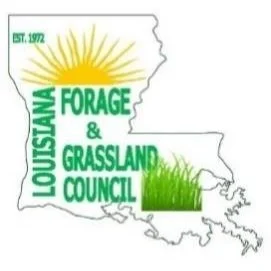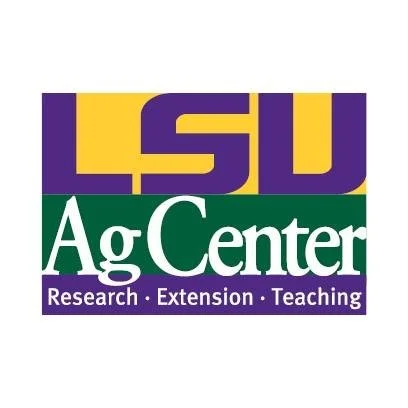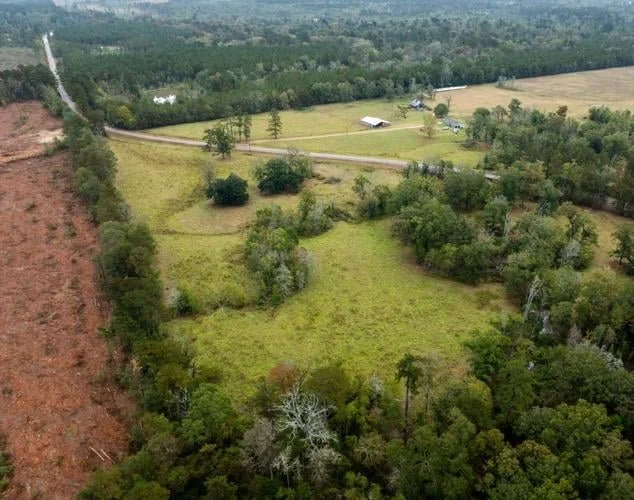Spring is in full swing as producers work to get any remaining cool season forages off pastures to allow for warm season forages to make their way through. Remember that forages, such as our winter annuals, can easily shade out summer perennials like bermudagrass. Your local extension agent can help you develop a plan to ensure maximum production of warm season forages on your operation.
Read MoreWarm-season perennial grasses such as bahiagrass, bermudagrass, and dallisgrass make up most of the acres of improved pasture in Louisiana. They also produce most of the grass hay harvested in the state. These grasses, if properly managed, are capable of remaining productive for many years after establishment, but initial establishment costs can be high.
Read MoreVariety selection is an important decision that producers must make when establishing forages in pastures. Many varieties of forage crops are marketed in Louisiana and scientists with the Louisiana State University Agricultural Center periodically conduct variety trials with warm-season forages. This information is used to make suggestions each year concerning warm-season forages for producers to consider utilizing.
Read MoreU.S. Senators Bill Cassidy, M.D. (R-LA) and John Kennedy (R-LA) introduced the CRAWDAD Act to support Louisiana crawfish producers through severe weather challenges by making them eligible for Emergency Livestock Assistance Program (ELAP) funding on a permanent basis, ensuring that they have access to the emergency support they need without bureaucratic delays. The bill would also classify a drought as a weather event that the U.S. Secretary of Agriculture could declare as an emergency.
Read MoreU.S. Secretary of Agriculture Brooke L. Rollins announced the suspension of live cattle, horse, and bison imports through U.S. ports of entry along the southern border due to the continued and rapid northward spread of New World Screwworm (NWS) in Mexico, effective immediately. NWS has been recently detected in remote farms with minimal cattle movement as far north as Oaxaca and Veracruz, about 700 miles away from the U.S. border.
Read MoreThe fight between the rural parishes and the industries supporting carbon capture and sequestration is not over.
On Monday, Allen Parish approved an ordinance establishing regulations for carbon storage wells.
Read MoreThe 2025 soybean planting season in Louisiana began favorably, with 80% of the crop planted by May 4th, significantly ahead of the 5-year average of 54%. However, recent heavy rainfall has introduced concerns. Late April storms caused flooding in some fields, necessitating replanting in certain areas.
Read MoreDr. Raquel Square Ayles has been named the Associate Vice Chancellor for Extension and Outreach at the Southern University Agricultural Research and Extension Center. The announcement was made during the Southern University Board of Supervisors meeting on May 8, 2025.
Read MoreDr. Tiffany Franklin has been named the Vice Chancellor for Extension and Outreach at the Southern University Agricultural Research and Extension Center. The announcement was made during the Southern University Board of Supervisors meeting on May 8, 2025. She will assume the position on June 1, 2025.
Read MoreThree bills aimed at leveling the playing field for Louisiana landowners facing carbon capture pipelines and underground injection plans made it out of a legislative committee on Wednesday, but they may face a tough road ahead.
A fourth bill that would direct revenues from those projects to a limited group of parish governments also made it out of the House committee.
Read MoreHurricane season begins June 1, but the National Weather Service face serious staffing challenges. Since the start of President Trump’s second term, nearly 1000 employees have left, leaving key offices in cities like Lake Charles, Houston, and Tampa understaffed. LSU Public Health Climatologist Barry Keim warns that this could delay critical weather alerts or spread inaccurate information.
Read MoreLouisiana’s state income tax was lowered to three percent at the beginning of the year and House Republicans would like to lower it again. The lower chamber has approved a proposed constitutional amendment that seeks to lower the state income tax from 3-percent to 2.75 percent beginning January 1st, 2027.
Read MoreU.S. Secretary of Agriculture Brooke Rollins today held the inaugural Farmers First roundtable at the U.S. Department of Agriculture (USDA). Secretary Rollins hosted Nebraska Governor Jim Pillen, the Board of Directors for the National Association of State Departments of Agriculture (NASDA), and over 20 farmers and ranchers from 11 states who run smaller-scale, independent, family-owned operations. These operations are at the heart of American agriculture and their continued success is critical for the economic viability of the industry.
Read MoreThe Secretary of Agriculture says it’s a new day for trade negotiations in America.
USDA’s Brooke Rollins says members of the Trump administration have been working around the clock to finalize new trade deals. “What normally would take 2 years to reach a trade agreement, we’re doing in the course of 30, 60, and 90 days,” she says.
Read More














